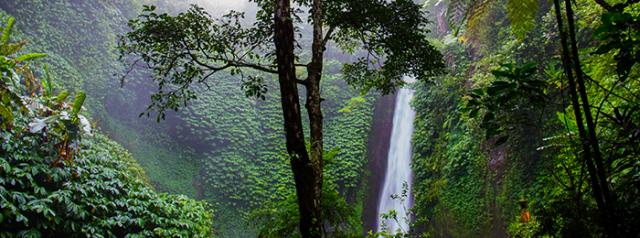The Holbrook Explorer

Earth Day at 50: Does this year hold extra significance?
Earth Day at 50: Does this year hold extra significance?
Coronavirus has shaken the world. Is this a wake-up call for the earth?
With Earth Day just around the corner, it’s clear this year’s event will be anything but typical—and not just because 2020 marks the 50th anniversary. Communities around the world are experiencing quarantine measures, economic uncertainty, and other disruption to their daily routines. We’ve all had to adapt to new ways of doing things, and our Earth Day celebrations will be no different. However, as the world takes a collective pause, we can also find renewed purpose and meaning in our environmental initiatives as we look ahead to the next 50 years.
Earth Day – A Brief History
The first Earth Day was launched in 1970 by Gaylord Nelson, a U.S. senator from Wisconsin. After seeing the aftermath of a devastating oil spill in Santa Barbara, Calif., the year prior, he was moved to create a national day to focus on the environment. As a result, various ecological groups that had been working separately were, for the first time, united around their common values.
“Our goal is not just an environment of clean air and water and scenic beauty,” said Nelson during the inaugural speech. “The objective is an environment of decency, quality and mutual respect for all other human beings and all other living creatures.”
In 1990, the event expanded its reach beyond the United States, with events in 141 countries. Today, the event’s organizer, Earth Day Network, works with more than 75,000 partners in over 190 countries worldwide. Over the last 50 years, more than 1 billion individuals have been mobilized to take action for the planet.
This Year’s Plan
Due to the widespread restrictions brought on by the coronavirus pandemic, many planned events were cancelled. However, Earth Day organizers announced in late March that they would be launching the first-ever Digital Earth Day. Using digital media platforms for their 2020 events, activities will include virtual protests, social media campaigns, and online teach-ins. Search for digital Earth Day events that you can take part in from home, or organize your own teach-in.
Another of these initiatives is a free mobile app, Earth Challenge 2020, offered in conjunction with its campaign of the same name. The app allows users to act as citizen scientists by capturing research-quality environmental data with their smartphones, as well as contact their elected officials.
What Leaders Are Saying
The theme of this year’s event is climate action, and despite the shift to digital platforms, the mission remains unchanged. “The last few weeks have also demonstrated that our society, even at the international level, is capable of mass shifts across all sectors to meet a crisis head-on,” said Kathleen Rogers, President of Earth Day Network, in a press release. “We must apply the same scale and urgency of our response to climate change.”
Members of Holbrook’s community of educational and conservation-minded organizations have had to shift their plans as well. Each year, for example, the Virginia Aquarium celebrates Earth Day with a “Party for the Planet” to celebrate the Earth’s biodiversity and learn how each individual can take action to make a difference. This year, the event will be livestreamed on Facebook from their nature trail.
“This year, in addition to our livestream conversation with our nature ambassador, Fairy Tansy, we are hopeful the closures of our aquarium and learning institution will lead to an even greater attention to the needs of our planet,” said Education Specialist Karen Burns. “Across the world, this is an opportunity for our communities to engage even more actively, in a safe manner, to conserve the planet for the future of our children.”
Attend Holbrook's Earth Day Webinar
If you’d like to hear more about how conservation leaders are planning for the future, you can join Holbrook for our Earth Day webinar panel discussion on Wednesday, April 22 at 4 pm ET/1 pm PT. Register here.
Steps You Can Take
Even if you’re stuck at home, there are at-home and digital activities that you can do at both the global and local levels. For example, the Earth Day Network has organized 22 daily challenges you can take to help fight the climate crisis. You can vote for representatives who will support policies that combat climate change, call or email your elected officials to advocate for the planet, and help researchers by contributing to citizen science. Share your efforts on social media using the hashtags #EarthDay2020 and #EARTHRISE.
